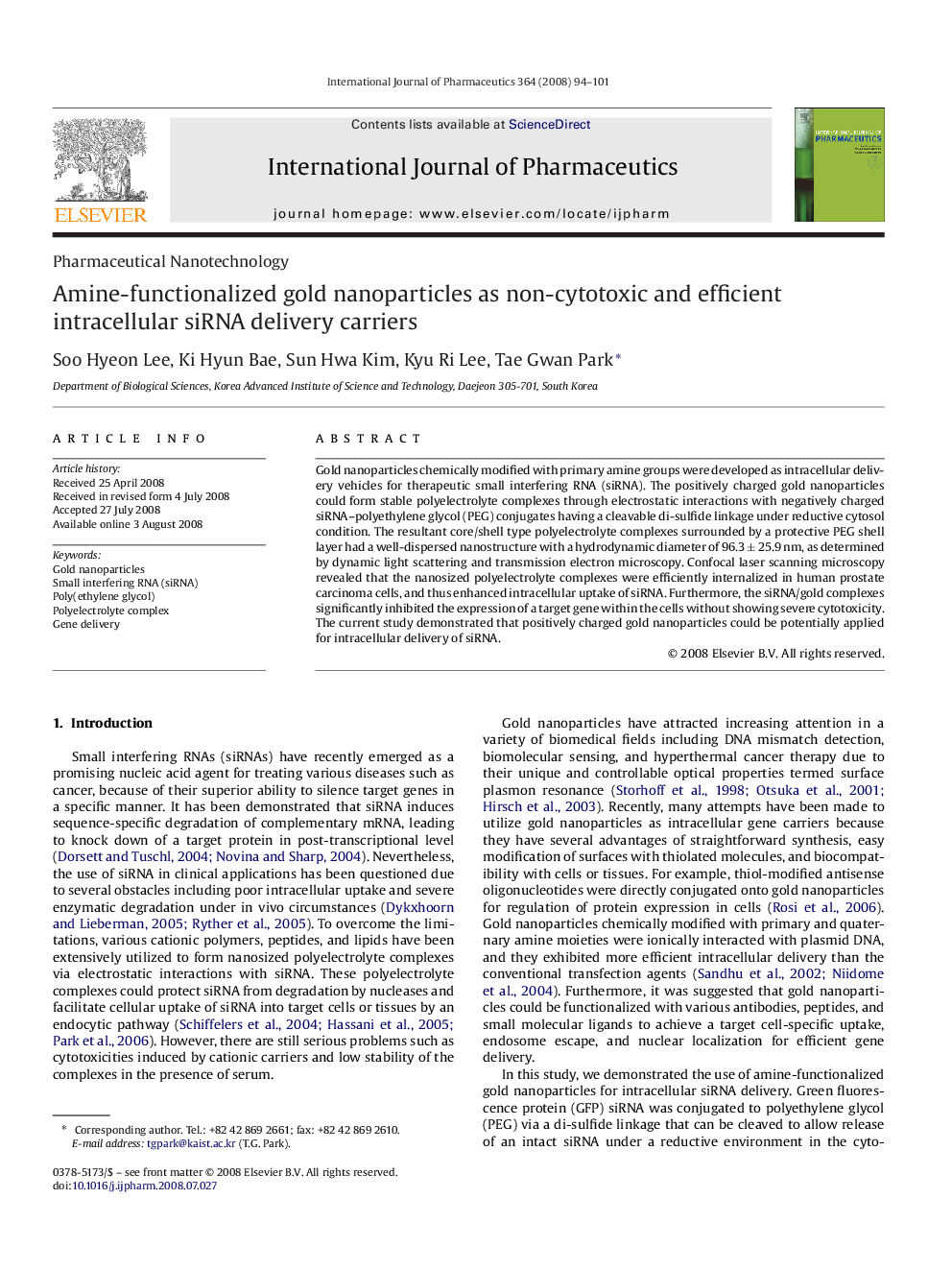| Article ID | Journal | Published Year | Pages | File Type |
|---|---|---|---|---|
| 2505044 | International Journal of Pharmaceutics | 2008 | 8 Pages |
Gold nanoparticles chemically modified with primary amine groups were developed as intracellular delivery vehicles for therapeutic small interfering RNA (siRNA). The positively charged gold nanoparticles could form stable polyelectrolyte complexes through electrostatic interactions with negatively charged siRNA–polyethylene glycol (PEG) conjugates having a cleavable di-sulfide linkage under reductive cytosol condition. The resultant core/shell type polyelectrolyte complexes surrounded by a protective PEG shell layer had a well-dispersed nanostructure with a hydrodynamic diameter of 96.3 ± 25.9 nm, as determined by dynamic light scattering and transmission electron microscopy. Confocal laser scanning microscopy revealed that the nanosized polyelectrolyte complexes were efficiently internalized in human prostate carcinoma cells, and thus enhanced intracellular uptake of siRNA. Furthermore, the siRNA/gold complexes significantly inhibited the expression of a target gene within the cells without showing severe cytotoxicity. The current study demonstrated that positively charged gold nanoparticles could be potentially applied for intracellular delivery of siRNA.
